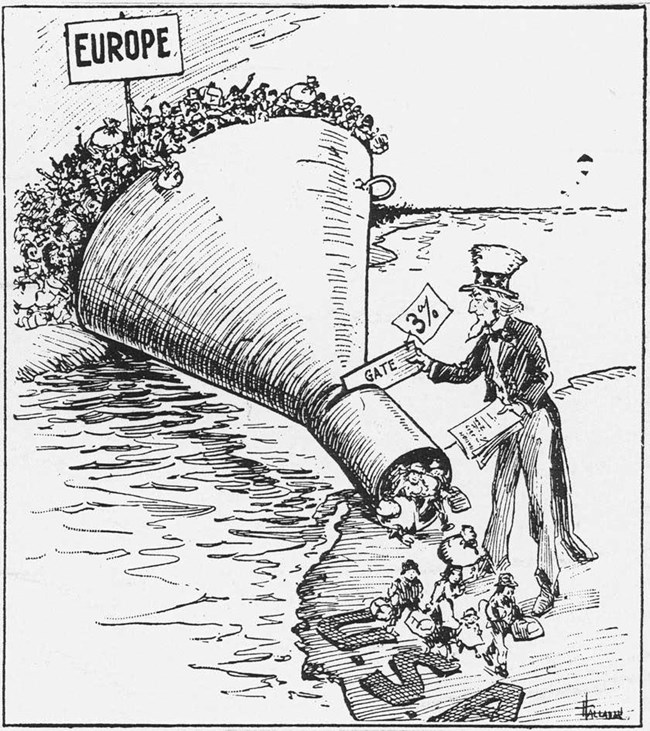
Before World War II and the Holocaust, American law made very little distinction between refugees forced to flee their countries due to persecution, and immigrants seeking a better life. After the war, the United States and the international community used a series of directives, organizations, and laws to help displaced European refugees, including Holocaust survivors, immigrate to new countries. Although refugees gained legal status under postwar international law, the scope of these laws was narrow and limited at first, before expanding to their current form.
KEY FACTS
- 1) In 1921 and 1924, the US Congress passed immigration laws that severely limited the number and “national origin” of new immigrants. These laws did not change in the 1930s, as desperate Jewish refugees attempted to immigrate from Nazi Germany.
- 2) After World War II, the American people continued to oppose increased immigration. With President Truman’s encouragement, Congress passed limited legislation to aid European displaced persons, including Holocaust survivors.
- 3) The United Nations’ 1951 Refugee Convention granted legal protection to refugees but placed limitations on qualifying for refugee status. The United States did not sign the 1951 Refugee Convention but did sign the 1967 United Nations Refugee Protocol, which removed those geographical and time limitations.
After World War I, America became an isolationist nation. In December 1920, in the context of this isolationism, the international influenza pandemic, and a postwar economic recession, the US House of Representatives voted to end all immigration to the United States for one year. The vote was bipartisan and was not close (293-41). The Senate did not believe the emergency warranted this dramatic step but was willing to significantly restrict the number of immigrants allowed to enter the United States.
Congress began negotiating a new immigration bill, which would set quotas for the first time on the number of immigrants from each country who could enter the United States. At the last minute, the Senate rejected the House’s proposed amendment, which would have made a distinction between immigrants and refugees by exempting immigrants who could prove they were escaping political or racial persecution. Had this amendment been enacted, the American response to the refugee crisis in the 1930s may have been quite different.
On May 19, 1921, President Warren Harding signed the Quota Act of 1921 (also known as the “Emergency Quota Act”). The 1921 quotas were enforced on Ellis Island, not at US consulates abroad. State Department officials could advise a potential immigrant on the probability that he/she would be allowed to enter due to health or economic status, but entry decisions were made upon disembarking in the United States. This led to so-called “midnight races,” where passenger ships raced to reach the United States as soon as possible at the beginning of each month when new portions of the quota were opened. Ships that arrived at 11 p.m. on August 31, for instance, could be fined for bringing passengers from countries where the quota had already been filled; one hour later, on September 1, the passengers could enter under newly opened quota slots.
For the complete article … encyclopedia.ushmm.org
image: nps.gov




You must be logged in to post a comment.